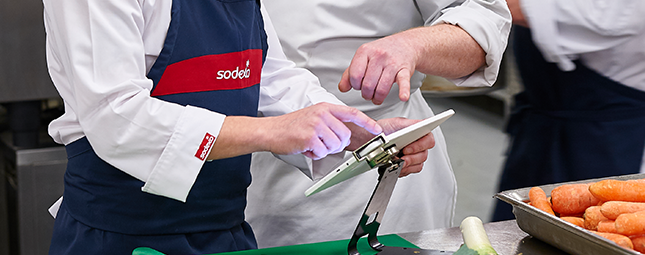Sodexo Middle East reports big food waste and carbon reductions using Leanpath

Sodexo Middle East has prevented over 400 metric tons of carbon emissions across 31 sites since August 2021. This has been made possible via Sodexo’s food waste reduction program, WasteWatch powered by Leanpath (WWxLP).
Launched in Q3 of 2021—across Energy & Resources, Defense, Healthcare, Corporate and Education sectors in the region—WWxLP has reduced waste by 20 percent, aligning with Sodexo’s aim to attain a 50 percent reduction in food waste as part of its Better Tomorrow 2025 initiative. WWxLP has prevented over 57,459 kilograms of food waste, which translates to 400 metric tons in carbon emissions avoided. That's the equivalent of 285 homes’ electricity consumption for one year
Colm O’Mahoney, CEO of Sodexo Middle East & Africa says, “Sustainable best practices are part of the ethos at Sodexo. As food waste is one of the most concerning issues in the region, and across the globe, we are extremely proud of our teams and their commitment to reduce food waste in the UAE and the wider Middle East. We are confident that with the support of WasteWatch powered by Leanpath, we will have a greater impact in the coming year as we expand our scope to cover close to 80 sites across the region; thus, contributing towards the country’s sustainable development goals as part of the UAE Vision 2030.”
According to Dubai Carbon, approximately 38 percent of food produced in the UAE ends up in waste daily. Currently operating in UAE, Qatar and Oman across 31 onshore and offshore sites across the region, WWxLP provides a sustainable solution to the food waste crisis by showing foodservice kitchens what they are wasting and why, allowing them to prevent that waste from reoccurring. The program also shares in-depth real-time insights on the financial and environmental impact created by food waste. Organizations can easily implement the recommended changes and goals within the operational processes to reduce their overall food waste, resulting in lower costs and higher efficiency.
